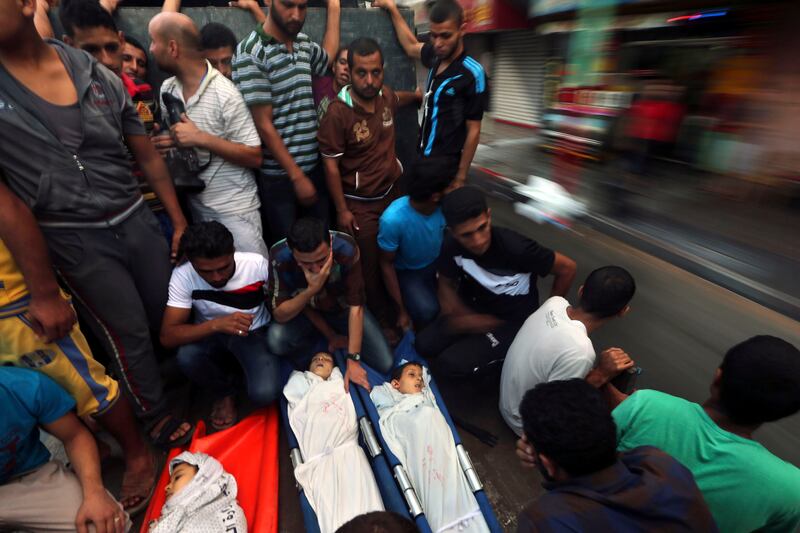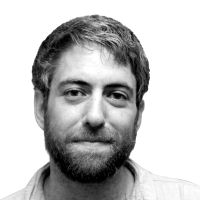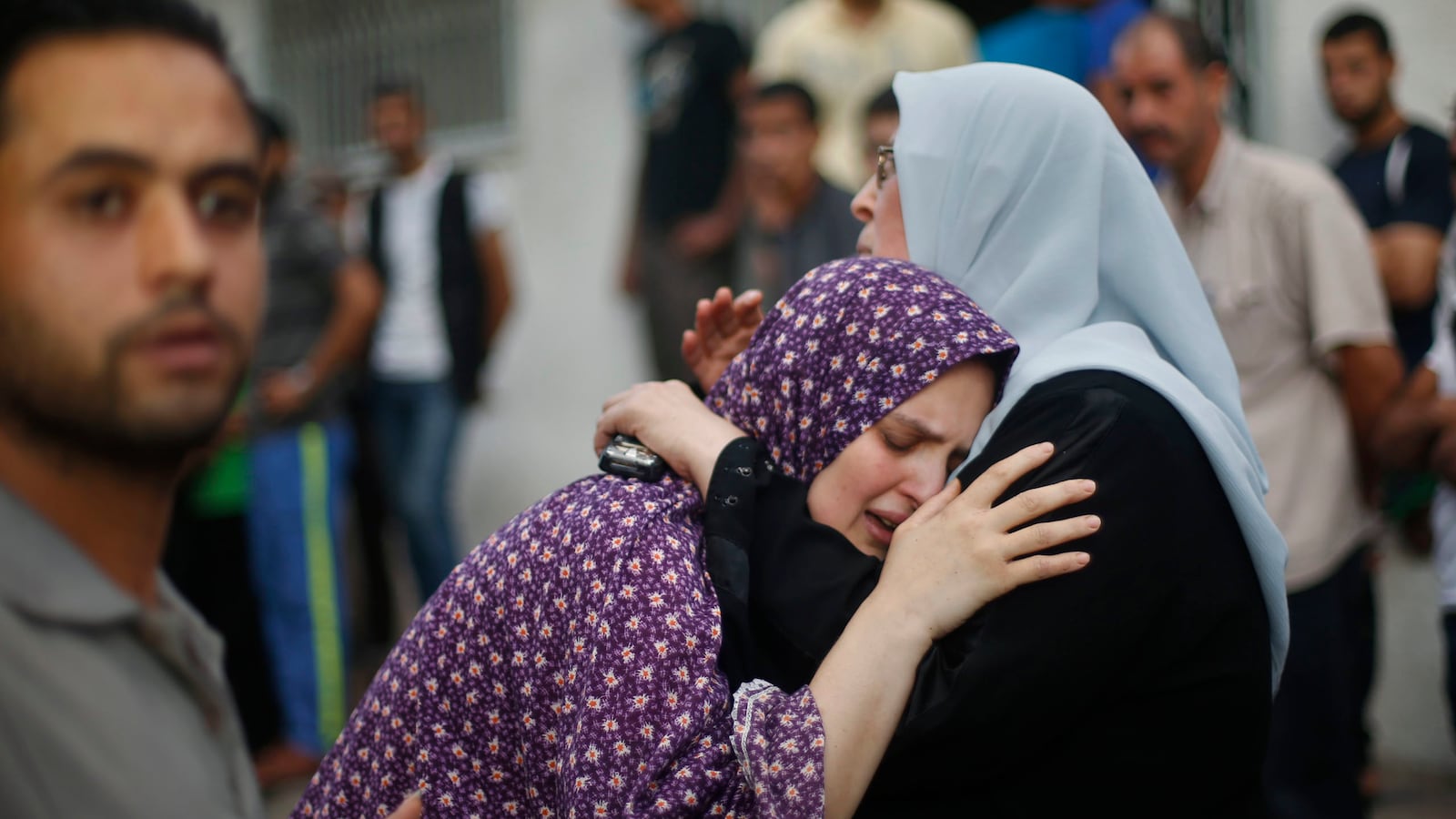GAZA CITY — Gaza is invaded, suffocated, bombarded from all sides, but thereis an eerie silence between the blasts as residents with nowhere to run take shelter in their homes.
Without an Iron Dome defense system, air raid sirens or even bomb shelters, people resign themselves to their fate. Theirs is a war weariness bordering on complete exhaustion built over the course of a seven-year blockade and repeated Israeli assaults. They sit. They listen for the rumble of F16s or the boom of naval cannons.
In what pass for normal times, Gaza City bustles. When classes let out, its streets are flooded with little children in their colorful school uniforms lugging their bags full of books. But now Gaza City is a deserted ghost town and tens of thousands have fled the north of the strip ahead of the widening Israeli ground incursion. As Palestinian reports claim guerrilla tactics are being used against Israeli troops in Rafah, Khan Younis and Gaza’s northern border, there is fear the carnage like that wrought in Israel’s bloody Operation Cast Lead of late 2008 will be repeated again now in Operation Protective Edge.Shells from the sea and aerial bombardment glowed in the sky last night amid the streaks of rockets launched by Palestinian fighters attempting to display an ability to resist. As the ground operation got underway, journalists scrambled to gather in the Deira Hotel after being told by the Israeli army to leave all other coastal buildings. But the devastating symphony of Israel’s fire echoed throughout Gaza and its effects became apparent only as the rubble was cleared.
Over 260 Palestinians and two Israelis have been killed since this round of violence broke out. Funerals, attended by crowds filled with rage and helplessness, are some of the few times that people overcome their fear and gather in the streets to pay their respects to those lives claimed by the latest Israeli attacks.
I attended one of those funerals a few hours before the ground incursion began on Thursday. Three of five children killed earlier that day were being laid to rest.
They had died soon after the expiration of a tenuous five-hour ceasefire requested by the United Nations to bring in humanitarian supplies. Fulla, Jihad, and Wasim Shuhaibar were hit by an Israeli “warning” shell while playing on the roof of their building in Gaza City’s Sabra neighborhood. The army calls the tactic “roof knocking” and presents it as a part of its attempts to warn civilians of an imminent attack by first dropping a small bomb on a building.
Issam Shuhaibar, the father of Jihad and Wisam, leaned on a grave next to where his children were buried, his eyes hollow, staring nowhere. His arm bore a hospital bandage applied after he gave blood to try to help save his family. His children’s blood still covered his shirt. They were just feeding chickens when the shell hit, he said.

“I heard a big noise on the roof and I went to find them,” he said. “They were just meat,” he gasped before breaking down in tears.
Despite the worsening situation and desperate desire to end the onslaught, there is a resolve among Gazans to oppose a ceasefire that allows Israel’s crippling blockade to continue. While there is a lot of resentment of Hamas, there is also the overwhelming feeling that there is little left to lose and that only resistance can change the status quo for Gaza’s Palestinians.
At the funeral of the children, hundreds of young men whisked the three small bodies wrapped in white shrouds from the family home to the mosque and then to the cemetery, chanting “God is Great.” Without anywhere to go or anywhere to direct their frustration, this short ceremony is the closest they get to a cathartic release before quickly returning home to await more attacks.
“What can we do?” asks a teenager coming out of the mosque of at the Shuhaibar funeral. “It’s like we are dead already.”






